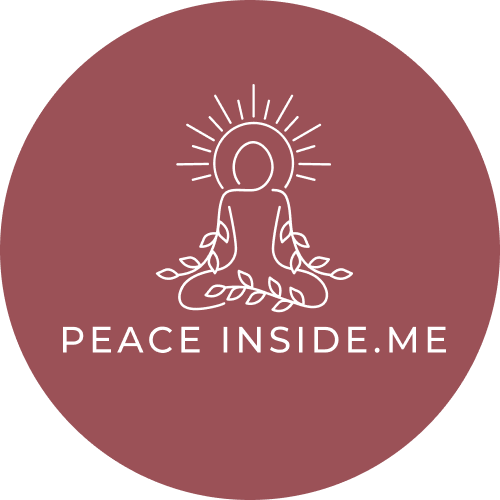peaceinside.me
Social Anxiety in the Age of Instagram
Please note, this post is partially or fully sponsored and may contain affiliate links.
In today’s digital world, staying connected has never been easier. With just a tap, we can share photos, thoughts, and daily updates with hundreds—even thousands—of people. But while social media offers connection, it also fuels comparison, perfectionism, and anxiety. For many, this creates a quiet struggle: social anxiety worsened by life on Instagram.
Let’s explore how Instagram affects social anxiety, why it matters, and how you can protect your mental health while still enjoying the platform.
Let’s explore how Instagram affects social anxiety, why it matters, and how you can protect your mental health while still enjoying the platform.

What Is Social Anxiety?
Social anxiety is more than shyness. It’s a mental health condition where people feel intense fear or discomfort in social situations. They worry about being judged, embarrassed, or rejected.
According to the National Institute of Mental Health (NIMH), about 7% of U.S. adults experience social anxiety disorder each year, making it one of the most common anxiety disorders. NIMH, 2023
Social anxiety can affect everyday activities like speaking in meetings, attending parties, or even making small talk. Now, with social media, that fear of judgment extends into the digital world too.
The Rise of Instagram and Digital Comparison
Instagram began as a photo-sharing app. Today, it’s a powerful social tool where people post carefully curated moments: vacations, promotions, fitness journeys, family photos. What often gets left out? The messy, painful, or ordinary parts of life.
When someone scrolls through a feed filled with “perfect” lives, it can trigger feelings of:
Signs Instagram Might Be Harming Your Mental Health
Ask yourself:
Social anxiety is more than shyness. It’s a mental health condition where people feel intense fear or discomfort in social situations. They worry about being judged, embarrassed, or rejected.
According to the National Institute of Mental Health (NIMH), about 7% of U.S. adults experience social anxiety disorder each year, making it one of the most common anxiety disorders. NIMH, 2023
Social anxiety can affect everyday activities like speaking in meetings, attending parties, or even making small talk. Now, with social media, that fear of judgment extends into the digital world too.
The Rise of Instagram and Digital Comparison
Instagram began as a photo-sharing app. Today, it’s a powerful social tool where people post carefully curated moments: vacations, promotions, fitness journeys, family photos. What often gets left out? The messy, painful, or ordinary parts of life.
When someone scrolls through a feed filled with “perfect” lives, it can trigger feelings of:
- Not being good enough
- Fear of missing out (FOMO)
- Pressure to post or engage a certain way
- Anxiety about how others perceive them
Signs Instagram Might Be Harming Your Mental Health
Ask yourself:
- Do you feel anxious before or after posting?
- Do you compare yourself often on the app?
- Are you afraid to post for fear of judgment?
- Do you obsess over likes, comments, or who viewed your story?
- Do you feel drained, insecure, or lonely after using Instagram?

How Instagram Fuels Social Anxiety
1. Fear of Negative Evaluation
One of the core features of social anxiety is the fear of being judged. On Instagram, this fear gets magnified.
You might think:
2. The Pressure to Curate a Perfect Image
People often feel the need to filter their lives—literally and emotionally. For someone with social anxiety, crafting the "right" image becomes a source of stress.
They may spend hours:
3. Fear of Being Left Out (FOMO)
Seeing friends hanging out without you, influencers living dream lives, or peers hitting milestones can make you feel like you’re falling behind. FOMO activates insecurity and isolation—feelings that social anxiety already feeds on.
4. Validation Becomes External
People with social anxiety often seek reassurance. Instagram offers temporary validation in the form of likes and comments, but it’s fleeting.
This creates a cycle of: Post → Wait for validation → Feel good (or not) → Anxiety builds → Repeat
1. Fear of Negative Evaluation
One of the core features of social anxiety is the fear of being judged. On Instagram, this fear gets magnified.
You might think:
- “Will people like my post?”
- “Did I use the right caption?”
- “What if no one comments?”
2. The Pressure to Curate a Perfect Image
People often feel the need to filter their lives—literally and emotionally. For someone with social anxiety, crafting the "right" image becomes a source of stress.
They may spend hours:
- Editing photos
- Rewriting captions
- Checking for likes or unfollows
3. Fear of Being Left Out (FOMO)
Seeing friends hanging out without you, influencers living dream lives, or peers hitting milestones can make you feel like you’re falling behind. FOMO activates insecurity and isolation—feelings that social anxiety already feeds on.
4. Validation Becomes External
People with social anxiety often seek reassurance. Instagram offers temporary validation in the form of likes and comments, but it’s fleeting.
This creates a cycle of: Post → Wait for validation → Feel good (or not) → Anxiety builds → Repeat

How to Use Instagram Without Feeding Social Anxiety
1. Set Boundaries with Time and Content
Limit how long you spend on the app. Use tools like screen time limits or app timers. Consider unfollowing accounts that make you feel inferior or anxious.
Curate a feed that inspires, uplifts, or educates you—not one that makes you feel “less than.”
2. Practice Mindful Posting
Before you post, pause and ask:
3. Embrace “Real” Content
There’s a growing trend toward authenticity online. Join it. Share unfiltered moments, talk about challenges, or post without overthinking.
This not only reduces pressure for you but also helps others feel less alone.
4. Take Breaks When Needed
If you notice rising anxiety, take a social media detox. Even a day or two can reset your mindset.
A 2021 study found that participants who took a 7-day break from social media reported lower levels of anxiety and depression. British Journal of Social Psychology
5. Get Support
If Instagram anxiety feels overwhelming, talk to a therapist—especially one trained in social anxiety or digital wellness. Cognitive Behavioral Therapy (CBT) is highly effective for managing social anxiety symptoms.
Support groups, both online and in-person, can also offer community without judgment.
1. Set Boundaries with Time and Content
Limit how long you spend on the app. Use tools like screen time limits or app timers. Consider unfollowing accounts that make you feel inferior or anxious.
Curate a feed that inspires, uplifts, or educates you—not one that makes you feel “less than.”
2. Practice Mindful Posting
Before you post, pause and ask:
- Am I sharing this for connection or validation?
- How will I feel if it doesn’t get much engagement?
- Is this authentic to me?
3. Embrace “Real” Content
There’s a growing trend toward authenticity online. Join it. Share unfiltered moments, talk about challenges, or post without overthinking.
This not only reduces pressure for you but also helps others feel less alone.
4. Take Breaks When Needed
If you notice rising anxiety, take a social media detox. Even a day or two can reset your mindset.
A 2021 study found that participants who took a 7-day break from social media reported lower levels of anxiety and depression. British Journal of Social Psychology
5. Get Support
If Instagram anxiety feels overwhelming, talk to a therapist—especially one trained in social anxiety or digital wellness. Cognitive Behavioral Therapy (CBT) is highly effective for managing social anxiety symptoms.
Support groups, both online and in-person, can also offer community without judgment.

Creating a Healthier Relationship with Instagram
Social media isn’t inherently bad. It can be a space for connection, creativity, and community. The key is using it consciously and compassionately.
You get to decide:
Give yourself permission to set boundaries and protect your peace.
Social media isn’t inherently bad. It can be a space for connection, creativity, and community. The key is using it consciously and compassionately.
You get to decide:
- Who you follow
- How often you log on
- What you share
- What you internalize
Give yourself permission to set boundaries and protect your peace.
Final Thoughts
Social anxiety is real, and so is the impact of Instagram. But with awareness and intention, you can create space between the app and your self-worth.
Remember, behind every “perfect” photo is a real person with struggles, insecurities, and messy moments—just like you. You are not alone. You are more than your likes. And you’re allowed to take up space, online and off, exactly as you are.
References
Social anxiety is real, and so is the impact of Instagram. But with awareness and intention, you can create space between the app and your self-worth.
Remember, behind every “perfect” photo is a real person with struggles, insecurities, and messy moments—just like you. You are not alone. You are more than your likes. And you’re allowed to take up space, online and off, exactly as you are.
References
- National Institute of Mental Health (NIMH). (2023). Social Anxiety Disorder. https://www.nimh.nih.gov/health/statistics/social-anxiety-disorder
- Marino, C., Gini, G., Vieno, A., & Spada, M. M. (2022). Instagram use, social comparison, and social anxiety: A path model. Computers in Human Behavior, 130, 107287.
- Hunt, M. G., Marx, R., Lipson, C., & Young, J. (2021). No More FOMO: Limiting Social Media Decreases Loneliness and Depression. British Journal of Social Psychology.
~
See a typo or inaccuracy? Let us know so we can fix it!
Sharing is caring ❤️
~
~
~
BECOME A PEACE INSIDER
Sign up for peaceinside.me information, inspiration, and specials.



